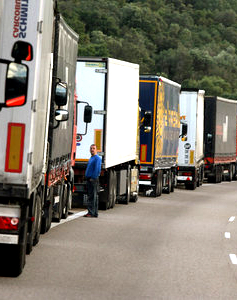Cross-border truck talks to bring balance
 The COAG Transport and Infrastructure Council has had its first meeting, launching the group designed to bring transport ministers and other authorities together across state boundaries.
The COAG Transport and Infrastructure Council has had its first meeting, launching the group designed to bring transport ministers and other authorities together across state boundaries.
The first meeting of the Council looked at government handling of heavy vehicles, infrastructure investment and the work of the National Transport Commission.
The Council had no shortage of topics, with members poring over reports including;
- Ideas for a regulations and compliance framework for heavy vehicle telematics and electronic work diaries
- A review of ongoing fatigue risks and time-counting arrangements
- Current chain of responsibility arrangements and places for improvement, with a review to be undertaken in partnership with industry associations and representatives from state agencies and police.
- A review of penalties in the Heavy Vehicle National Law.
One concrete move from the meeting saw a change made to heavy vehicle national regulation.
Ministers have agreed to allow up to one tonne of mass to be transferred to a tri-axle group from other axle groups, without increasing the overall mass of the vehicle operating under General Mass limits.
“This is expected to provide greater loading flexibility and improve handling of uneven loads,” the Council determined.
“These measures recognise the need to improve the transparency of information provided to the heavy vehicle industry on road conditions and service standards, provide the heavy vehicle industry with assurance that road agency planning and funding processes are robust and transparent and, where appropriate, enable industry to be more closely consulted in decision making processes,” their communiqué says.
The Transport and Infrastuctrue Council also finalised the National Heavy Vehicle Regulator's budget to 2014-15, and agreed to start work to implement initial heavy vehicle investment and address access reform
At its next meeting, the Council will consider a new report by the Heavy Vehicle Charging and Investment (HVCI) Board on possible steps to create heavy vehicle charging and investment reform.
The Council also agreed that the Northern Territory Government will take charge of the development of a Remote and Regional Transport Strategy, as discussed at last week’s Remote and Regional Transport Infrastructure and Services Forum.
The strategy should take full account of the issues and solutions to resolve the clear transport challenges faced by remote and regional operators and clients.
“The Council also recognises that the significant and distinctive challenges in remote and regional Australia require flexible application of national approaches” it said.








 Print
Print